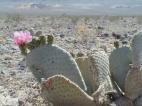 “Some elders once came to Abbot Anthony, and there was with them also Abbot Joseph. Wishing to test them, Abbot Anthony brought the conversation around to the Holy Scriptures. And he began from the youngest to ask them the meaning of this or that text. Each one replied as best he could, but Abbot Anthony said to them: You have not got it yet. After them all he asked Abbot Joseph: What about you? What do you say this text means? Abbot Joseph replied: I know not! Then Abbot Anthony said: Truly Abbot Joseph alone has found the way, for he replies that he knows not.”
“Some elders once came to Abbot Anthony, and there was with them also Abbot Joseph. Wishing to test them, Abbot Anthony brought the conversation around to the Holy Scriptures. And he began from the youngest to ask them the meaning of this or that text. Each one replied as best he could, but Abbot Anthony said to them: You have not got it yet. After them all he asked Abbot Joseph: What about you? What do you say this text means? Abbot Joseph replied: I know not! Then Abbot Anthony said: Truly Abbot Joseph alone has found the way, for he replies that he knows not.”—Wisdom of the Desert
The late Korean Zen Master Seung Sahn built his entire teaching around the concept of “Don’t Know” mind. He was in a great stream of spiritual giants who cultivated “not knowing” as a means to true knowledge.
Can we apply this openness and humility to our lives as well as the scriptures? If we don’t know, then we are open to new ways of understanding. We are open to the perspectives of others. We are open to that which does not fit into our plans. We are comfortable with paradox.
“Don’t Know” implies a degree of existential trust that is radically different from the certitude and confidence we normally seek. And in this sense, the greatest paradox emerges: “Don’t Know” is true faith.




No comments:
Post a Comment